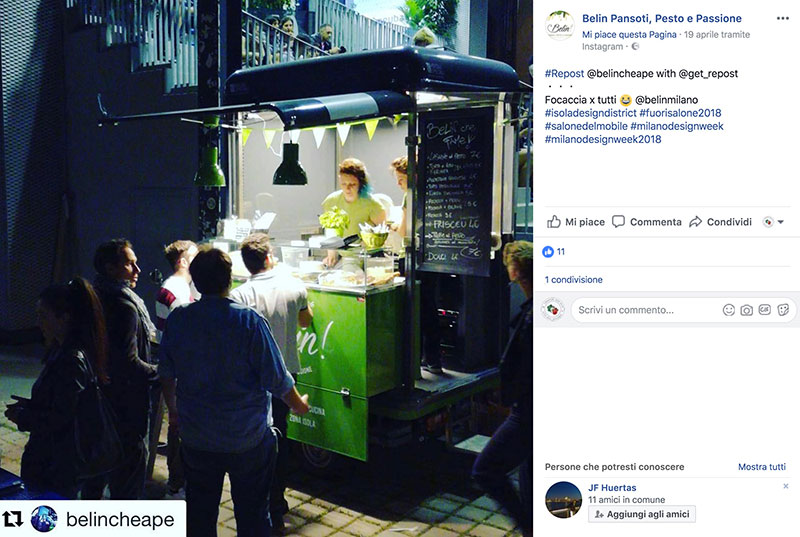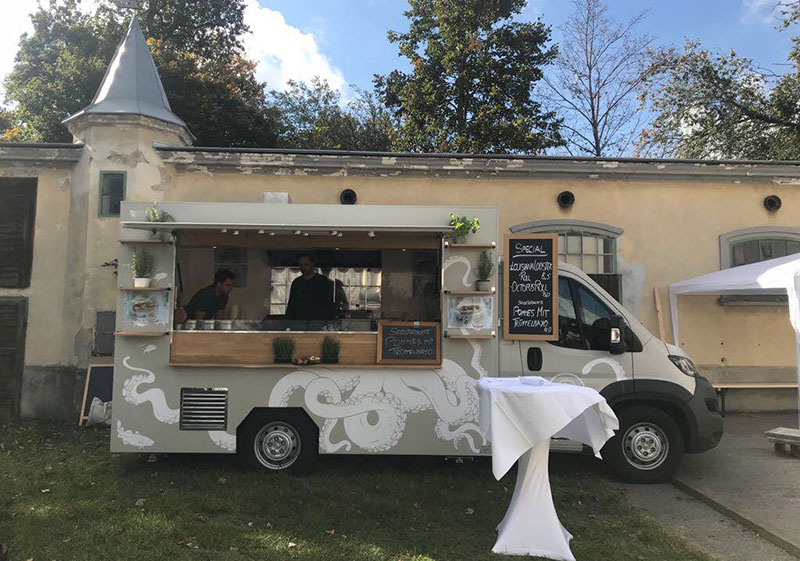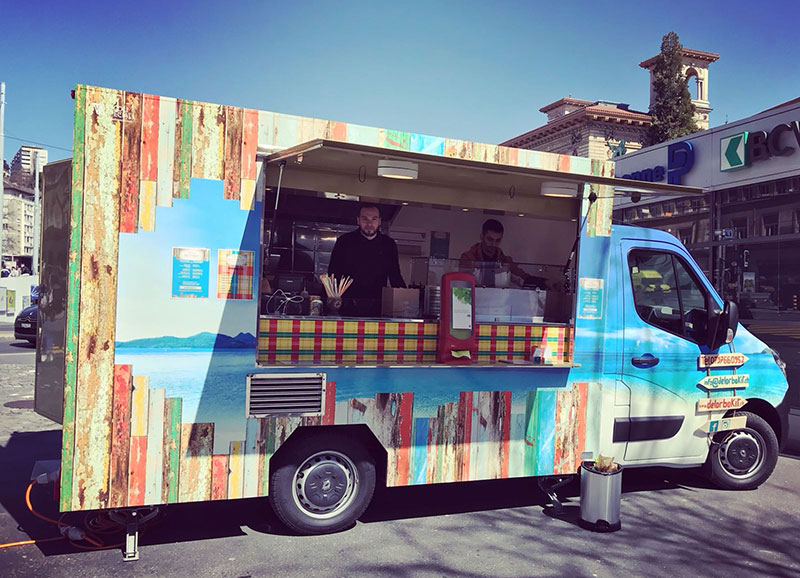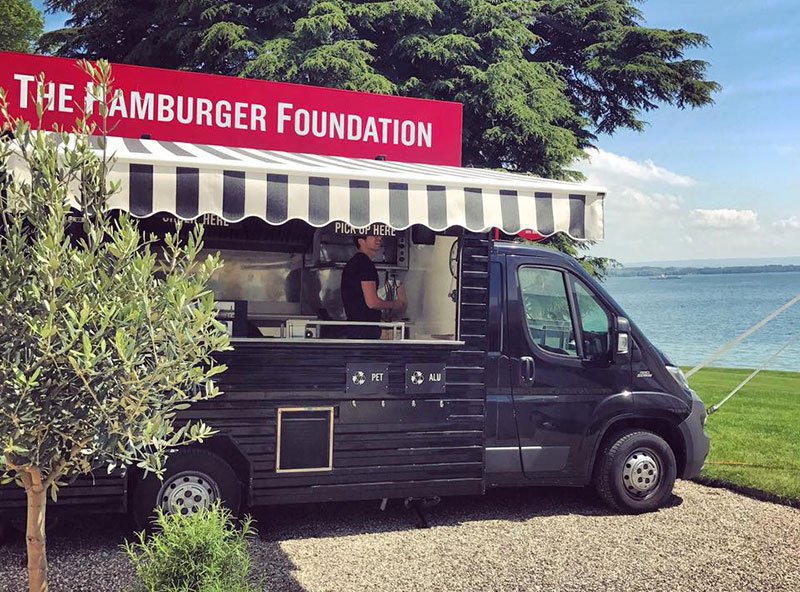Once upon a time, there were kiosks and mobile food shops with little to no pretensions, street food business as an improvised solution to make ends meet, with minimal professionalism, no attention to communication, marketing activities… what?
It seems like an era has passed since the activity of a food trucker was essentially boiled down to three steps:
- Rigging up a van for transporting and preparing food to sell;
- Procuring the raw materials to make the products;
- Identifying and “conquering” a spot to position one’s vehicle.
Today, those who reduce themselves to this entrepreneur profile are doomed to failure.
The quality of food trucks and the culinary offerings have grown immensely, street food is no longer a minor sector, a disqualifying niche within the restaurant industry, but a macro-trend that has become fashionable, also thanks to changes in eating habits and the ways meals are consumed.
The competition in the street food industry has increased exponentially, also due to the participation of new actors with significant capital and resources to invest: successful restaurants, ice cream parlors, and pastry shops, restaurant and fast food chains, companies operating in different sectors that use food trucks and itinerant kitchens as a tool and opportunity to promote their brand and their products/services.
In this context, success is only achieved by the entrepreneur who focuses on the quality of assets (food trucks and high-profile products), supporting them with adequate street marketing and communication strategies.
The marketing strategy begins with the product
If a market is full of competitors, we cannot afford to tackle it with a mediocre and superfluous offer. We need to stand out, remain imprinted in the memory of our customers.
For this reason, the product comes first and must be studied before starting a street food business and must possess certain characteristics:
- High quality;
- Suitable for the dietary customs of the places where it is offered;
- Distinguishable in some way in terms of ingredients, preparation, or presentation;
- Easily consumable on the street and designed for takeout;
- Suitable for the season in which it is offered.
To identify it, may be useful conducting a market research analyzing who the competitors are and what they offer in the area where you intend to enter.
Furthermore, one can seek inspiration by observing the most popular street foods in Europe.
The identification of the product should be followed by the selection of the business name and logo, two tasks that, unless one possesses personal talent, should ideally be entrusted to professionals.
Once the pillars around which the activity revolves are established, the time comes to conceive a food truck that is consistent and up to the challenge. It must be:
- Compliant with the law to avoid penalties or operational stops and, in any case, to ensure the proper preservation and handling of food;
- Ergonomic to facilitate work on board;
- Equipped with first-class equipment to offer customers a quality service;
- Aesthetically beautiful, a food truck with a refined design, to catch the eye of passersby before their palate;
- Displaying social media channels and the website.
Here, let’s be clear, saving a few thousand euros to buy a food truck that over time will reveal its limitations makes no sense.
The street vendor will spend most of his working day on and with the food truck, which is means of transport, work place and communication tool, all in one.
If a higher initial investment translates into a higher quality food truck, one should not hesitate; the initial effort will be repaid a hundredfold.
Communicate and promote your food + truck
Initially, the emphasis was placed on the quality of the product because a good product is easier to present to the public and potential customers. In this sense, it should not be taken for granted that good street food sells itself and that word of mouth alone is enough to promote it.
The product must be “explained” with communication that highlights its distinctive characteristics, the qualities that make it unique.
On the website, in social networks, through the food truck’s graphics, through packaging and takeout containers, every space and channel should be utilized to communicate, intrigue, and convince of the goodness of one’s street food.
New platforms and channels do not replace but complement traditional strategies based on flyers, word of mouth, and verbal communications.
Traditional marketing and unconventional marketing go hand in hand:
- With the vehicle, blackboards displaying the menu of the day, and promotional signs, one performs street marketing.
- With the website and social media, web marketing and storytelling are done, communicating the schedule of movements and events one will participate in, publishing the most beautiful and meaningful photos and videos.
Food festivals and street food events offer further commercial and promotional opportunities to be fully exploited.
Everything adds up to increasing the notoriety of the food truck. One must be creative: as shown by Francesco Orrù, a 21-year-old who started his “Itinerant Street Food” project in Sardinia (Italy) and promotes it through a television-style format with aspiring chefs competing on board three food trucks he bought at once.
Succeeding in the street food truck sector today requires a variety of practical, communicative, and relational skills. One must be a full-fledged entrepreneur, know the market, and have sufficient mastery in dealing with customers.
A beautiful challenge, indeed, but also an important earning opportunity, especially for those who embrace street food as a complementary activity to expand his business.
There are examples of entrepreneurs and chefs who began with a restaurant and then started a food truck, and conversely, examples of people who began with a mobile food business and then opened traditional establishments.
Your enthusiasm is the foundation upon which building up your marketing and communication skills.












